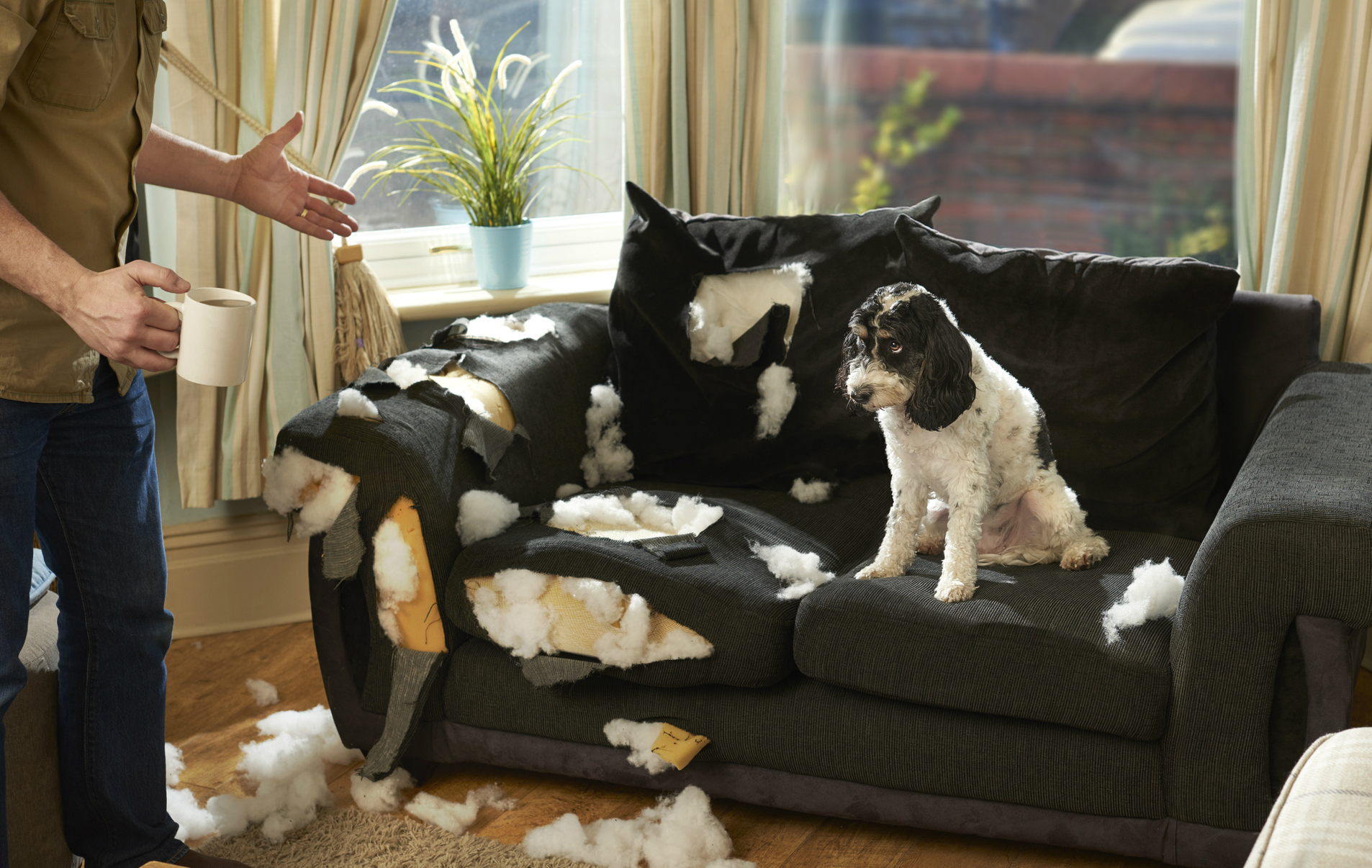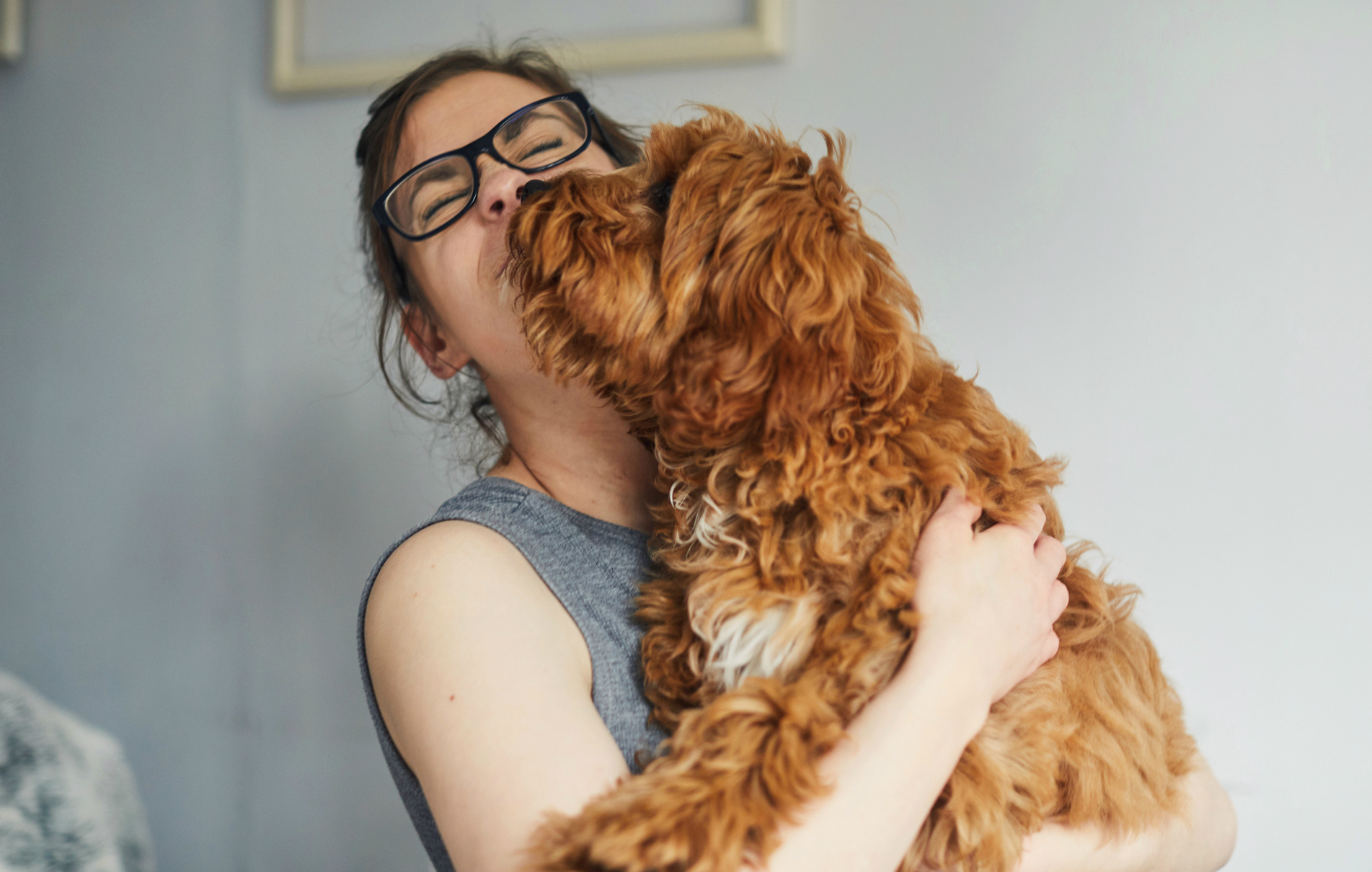Animal expert warns that shouting at your dog could lead to bad behaviour

Yelling at your pup could actually lead to worse behaviour.
Training your dog can be an extremely frustrating process, but it's important to remember keep a cool head, as animal experts have warned that yelling at your pet will not improve their behaviour.
In fact, the professionals have gone as far as to say that shouting is the worst thing to do if you're trying to train your pup.
The co-founder of Vet UK, Dr. Lyane Haywood, told the Metro: ‘When it comes to dog training, it should be seen as a two way street, involving a certain amount of give and take from both you and the animal'

‘What it’s not is a dictatorship. There’s almost never a time when screaming and yelling at your dog is acceptable.'
The animal expert added that yelling should only ever be used in exceptional circumstances: 'Unless your dog is about to run into a busy road and come to serious harm, I wouldn’t ever use any form of harsh voice.'
Dr. Haywood then talked about what the ultimate aim of the dog training process should be for every pet owner: 'It’s about rewarding good behaviour, not punishing the bad.'
GoodtoKnow Newsletter
Parenting advice, hot topics, best buys and family finance tips delivered straight to your inbox.
The veterinarian explained that yelling at a dog for misbehaving simply leaves the pet confused, because they cannot understand human emotions to the same degree that we can, therefore do not know how to respond the way that we expect them to:

She revealed: 'If you scream at your dog, your dog thinks, “Oooh, great, my human is really excited, too, I’ll make even more noise!” ‘It actually gets the dog more hyper-active. And it also sends out completely mixed messages.’
Dr. Haywood went on to give an example of when pet owners use this confusing tactic, such as when you catch your pet misbehaving by chewing on something at home, like a cushion:
‘Don’t shout, just take the cushion from it and give it something more appropriate to play with instead – something you should have done in the first instance.'
‘And then it’s about rewarding the good behaviour, no matter how trivial it might be.’
That's not all though folks, as pet owners have also been warned to keep an eye on just how many cuddles they give to their pets - as apparently as being overly-affectionate with your dog can also damage the training process.

Dr. Haywood explained: 'If your dog is frightened of something, your gut reaction might be to comfort it by giving it a cuddle and a treat'
‘But all you’re doing here is rewarding a negative behaviour, reinforcing this unhelpful emotion and actually exacerbating fear.'
The vet warned that in these situations, instead of rushing to cuddle your dog, you should 'instead remove the dog from the situation, let it calm down gradually, and re-introduce it to the thing making it scared, gradually.'
Once your dog can approach the scary thing without becoming afraid, you are then free to reward your pet.
This information has given us a lot to think about when it comes to our relationship with our pets, but one thing's for sure, patience certainly is a virtue in the dog training process.
Trusted, informative, and empathetic – GoodToKnow is the ultimate online destination for parents. At GoodtoKnow, our mission is 'simple': we're trying to make sense of parenthood. On the site, you'll find everything you need for a happy, healthy family life. Our huge archive of content includes more than 18,000 articles and 1,500 how-to videos. These include expert-backed advice features on parenting, dealing with relationship changes after having a baby, self-care for mums and managing your family finances. We also feature tried-and-tested product reviews and buying recommendations for every stage of family life - from prams and Moses baskets to birthday gifts and top toys.